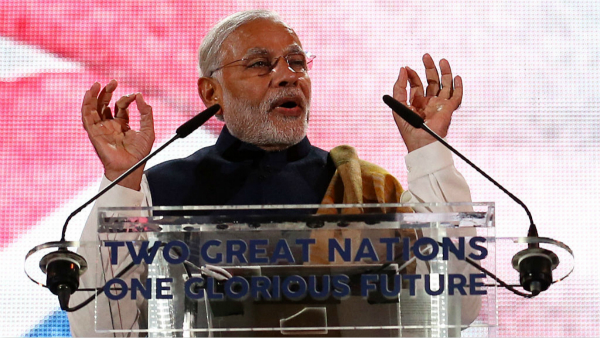(单词翻译:单击)
On November 8 2016, Narendra Modi, the prime minister of India, announced that the Rs500 and Rs1,000 notes (worth about $7.50 and $15 respectively) would be demonetised with immediate effect. This act cancelled 86 per cent of the value of cash in circulation. Moreover, the cancelled notes had to be deposited in banks by December 30 with restrictions on withdrawals.
2016年11月8日,印度总理纳伦德拉?莫迪(Narendra Modi)宣布,将立即废除面额为500卢比和1000卢比的纸币(分别约合7.5美元和15美元)。此举导致流通中现金减少了86%。此外,被废纸币必须在12月30日之前存入银行,并且取款受到限制。
In its boldness, this move by the democratically elected leader of so vast a country makes everything that US President Donald Trump has done so far look trivial. Should one regard it as a decisive action in India’s war against tax evasion, the black economy and pervasive corruption? Or is it a damagingly arbitrary act by an illiberal democrat? Today, it seems a bit of both. In the long run, it depends on what happens next.
如此庞大国家的民选领袖此举之大胆,让美国总统唐纳德?特朗普(Donald Trump)迄今所做的一切显得微不足道。我们应把此举视为印度打击逃税、黑色经济和猖獗腐败的斗争中的一次果断行动吗?还是应把它视为一位偏执的民主人士非常独断的做法?现在看来,两者都有点像。从长期来看,结论要取决于未来的事态发展。

For a politically and economically stable country suddenly to impose so unexpected and radical demonetisation is unprecedented. Why would any elected government inflict such a shock, particularly since India’s economy is so dependent on transactions in cash? As a lower-middle-income country, India still contains a huge number of people who are outside the formal financial system. Moreover, India is also relatively cash-dependent even for such a country: one estimate is that cash still accounts for 78 per cent of consumer payments.
一个政治和经济稳定的国家,突然采取如此意外、激进的废钞之举,是前所未有的。一个民选政府为何要造成如此的冲击——特别是考虑到印度的经济如此依赖现金交易?作为一个中低收入国家,印度仍有巨量人口处于正规金融体系之外。此外,即使在印度这样一个国家,其对现金的依赖程度也相对较高——据估算,目前现金支付仍占总体消费支付量的78%。


